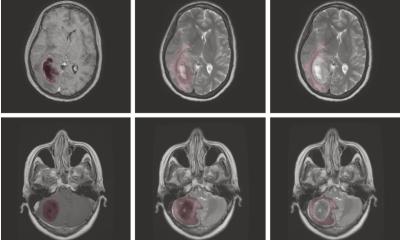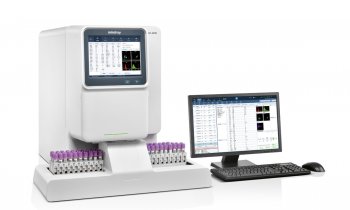News • Hematology
Using AI to predict multiple myeloma evolution
An international study led by the Spanish National Cancer Research Centre (CNIO) and the 12 de Octubre Hospital in Madrid uses AI for the first time to predict the evolution of multiple myeloma in patients.

Image source: CNIO
An international study led by the Hematological Tumor Unit Hospital 12 de Octubre-CNIO, with the collaboration of the California Hospital, has succeeded in identifying patterns of response to treatment in patients with multiple myeloma using AI tools, which helps to accurately predict the evolution of the tumor. This is the first time artificial intelligence has been used to predict response to disease treatment. Up to 30% of patients can be withdrawn from maintenance therapies and thus avoid the side effects they suffer from.
The researchers published their findings in Blood Cancer Journal.
Multiple myeloma (MM) is the most common hematological tumor and, although there is still no cure for it, the introduction of new drugs in recent years has greatly improved the prognosis of the disease. In order to make clinical decisions that improve the efficacy of treatment, it is a priority to be able to predict how the tumor will evolve and the possibility of relapses. Researchers have therefore focused on detecting a key factor in this prediction: minimal residual disease. In other words, the minimum number of cancer cells remaining in the body after initial treatment.
According to Joaquín Martínez, head of the Hematological Tumor Research Unit at the Hospital 12 de Octubre-CNIO, principal investigator and author of the study, there are currently very innovative predictive techniques that allow treatment decisions to be made for 20% of patients. “This work with AI allows us to make a much more accurate prediction of the evolution of the patient’s myeloma, which will let us make with much greater certainty clinical choices, such as the withdrawal of maintenance treatment on the basis of more reliable results, and benefit more patients. We are talking about 30% of patients who will have a good prognosis and no relapses, and who can be spared the side effects associated with this treatment, including gastrointestinal lacerations and the risk of new tumors.”
Recommended article

News • Leukemia MRD after chemo
AML: Residual cancer testing as an important safeguard
Blood cancer cells can remain in the blood of AML patients, even after chemotherapy seemed successful. Testing for these residuals before blood cell donation is a vital precaution, a new study finds.
In addition, researchers have found a new parameter that can complement this tool to predict which patients will do better. It is called clonal diversity and is equivalent to the degree of recovery of the immune system. A higher clonal diversity means that the patient has a higher frequency of normal immunoglobulins, and this indicates they have a better prognosis than those with a lower frequency. Clonal diversity could complement the assessment of minimal residual disease (MRD) in predicting outcome for multiple myeloma.
For this study, 482 patients with multiple myeloma were retrospectively analyzed at the University of California, San Francisco (UCSF). They had been diagnosed between 2008 and 2020, 304 of them newly diagnosed and 178 with relapsed disease.
Source: Spanish National Cancer Research Centre
25.09.2024










